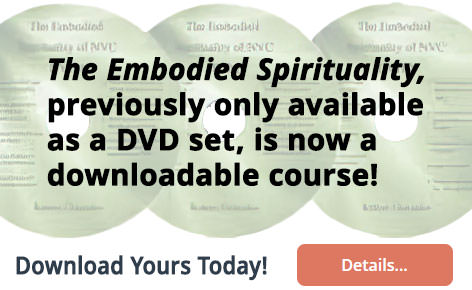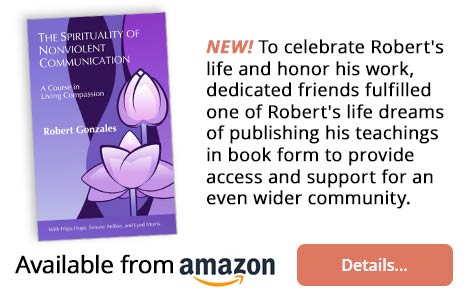

Welcome to the Robert Gonzales Training Legacy. Here you can learn more about Robert and the powerful teachings he dedicated his life to. NVC Academy is proud to house and share with you the complete body of his life's work. We invite you to explore, learn, and help keep his legacy alive!
Robert's passion was in the spirituality of the Nonviolent Communication (NVC) process. He saw NVC both as a process that helps people connect more authentically with themselves and others, and as a spiritual practice and way of living. The worldwide NVC community mourned when Robert died in 2021. He left behind a legacy of work that emerged from a lifetime of inquiry into the intersection between spirituality and human communication. More about Robert.
Article
1-2 minutes
Here's a list of words that pose as feelings, but are actually interpretations of what you think someone is doing to you. They trigger defensiveness in another thereby preventing a connected dialogue. Behind each of these words are precious feelings and needs. This sheet includes ways to distinguish feelings from interpretations.
Details...Trainer Tip
1 - 2 minutes
Trainer tip: Whenever we judge someone else in any way, we create a barrier and distance between us and the other person. Instead, consider shifting from judging other people to awareness of how their behavior affects your feelings and needs. This can make a profound difference in your ability to live peacefully. Read on for more.
Details...Trainer Tip
1 - 2 minutes
Trainer tip: Beware that your expression of feelings helps you own how you feel, rather than blaming the other person for doing something you see as wrong. Expressing your feelings helps the other person know how deeply this issue affects you. Plus it can bring more clarity and connection to all parties. Read on for more.
Details...Trainer Tip
1 - 2 minutes
Trainer tip: Comparisons are a form of judgment. The minute we compare ourselves to other people, we are setting ourselves up for pain and discouragement. We are setting them up too, and erecting a barrier between ourselves and them. Instead, notice how you feel about other people’s assets or foibles, and what needs come up for you. Read on for more.
Details...Trainer Tip
1 - 2 minutes
Trainer Tip: There's often a large gap between what we experience, and the story we make up about it. Noticing how our judgments and assumptions cloud our observations can be critical to creating a connection with others and maintaining a Nonviolent Communication consciousness.
Details...Trainer Tip
1 - 2 minutes
Trainer tip: Judging others can affect our ability to communicate effectively with that person, or enjoy the relationship. Translating the static judgments (enemy images) we have of others into our own and others' feelings and needs can help us move into greater understanding, healing, and relief -- which can foster compassion and connection. Read on for more.
Details...Trainer Tip
1 - 2 minutes
Trainer tip: Various life circumstances that can seem to be something that we don't want, and we may think of them as bad. And then later the situation may reveal that it's a circumstance that we do want, and we may think of it as good. Instead, of evaluating our day as good or bad we can acknowledge the feelings and needs that are present. Read on for a few anecdotes that illustrate this.
Details...Trainer Tip
1 - 2 minutes
Trainer Tip: Our inner critic judges ourselves and other people; and it is the most likely to get scared when we begin to make a change. It holds wisdom for us if we are willing to listen. When we acknowledge our inner critic and empathize with its need, we gain insights into ourselves and we clear the way for resolution.
Details...Trainer Tip
1 - 2 minutes
Trainer Tip: Today, identify the facts, without adding your ideas about why people behave in certain ways. Then consider connecting with the person about what was going on with them. You will find that the more you observe life without judgment and evaluation, the more open you will be to hearing and connecting with other people.
Details...Article
3 - 5 minutes
Sometimes even a very skilled empathy practicitioner can go into offering a non-empathic response, even when asked for empathy. Why? One reason could be that our brains might be less receptive because of unseen forces that affect our brain and relationship with others. This article speaks to the deeper "why" and also to one thing we could do to turn it around...
Details...

